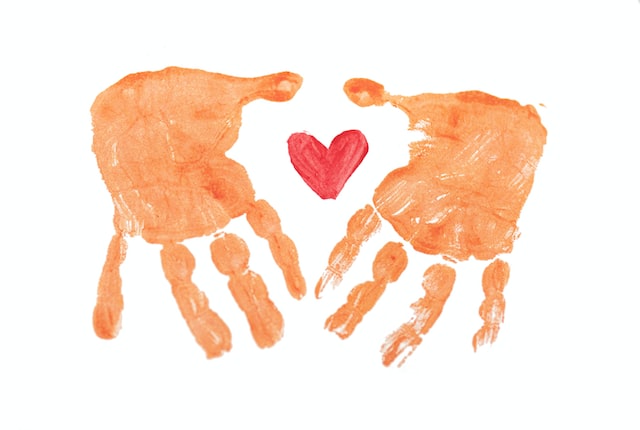| It Has to Come to Words!
|
|
| Thursday, December 01, 2022 | |
I am irritated. My wife’s friend mentioned a Sunday sermon where she heard it's unnecessary to be so concerned about verbally sharing our faith. And the preacher quoted these familiar words attributed to Saint Francis of Assisi: “Preach the gospel always—and when necessary, use words.” It’s a pleasant thought. But it isn’t biblical. The Great Commission is not “Go into the all the world and do kind deeds.” It’s preach the gospel! Doing good things is good. Unquestionably, rendering kind acts of service for others opens doors to sharing the gospel. But good deeds are NOT the gospel. The gospel is the good news that because of His death on the cross, Jesus paid the penalty so people who are sinners and condemned to eternity in hell can be wholly forgiven. When it comes to sharing Jesus, too many see ourselves as merely offering a lifestyle enhancement (“Jesus can make your life complete”) rather than a rescue from a burning building. Do you see lost people as lost—teetering on the very brink of the chasm of hell? Or do you see them as good-hearted folk who just “need a little light for their path?" There's a massive difference in the way you'll approach them.
Rescuers don’t say, “You might want to consider this option.” No, they say things like:
Rescue words are bold words because the situation demands them. Good deeds are biblical. Good deeds are vital—God uses them! But let’s stop kidding ourselves. If you're serious about spiritual rescue, it HAS to come to words.
|
|
| Grace looks like chocolate cake. Sometimes.
|
|
| Thursday, November 24, 2022 | |
If you have never sampled a Portillo’s chocolate cake, never twiddled your fork in its fudgy excess, your culinary character is in question. The offer of a free slice of this deadly desert was enough to lure my son, Tim, and me into surrendering our email addresses to join Portillo's birthday club. Both November babies, it was time for us to claim the prize. Having secured a couple of tables at Portillo’s, my wife, Diana, engaged Tim’s wife and girls with a pilgrim craft. Patrons and staff alike fawned over Tim’s little blonde girls (wearing matching red plaid tops and headdresses). Then the girls joined Tim and me in line to place our food orders. While we waited at the counter for our order, little Ava and Emma chatted up one of the servers. Abruptly, the server grinned and said, “Hey, would you girls like a piece of cake?” They giggled, and she slipped them a (free) piece of cake. With the two birthday freebies Tim and I had previously ordered, our cake count was now up to three. We returned to our table with the girls—and their chocolate prize—only to discover that moments earlier, another worker had bought out two other pieces of cake for them. We now had five free pieces—a virtual pyramid of unearned, undeserved, seemingly unending cake.
The joyous excess struck me as a metaphor for the kindness of Jesus. John 1:16 says, “For of His fullness, we have all received, and grace upon grace.” Ponder that phrase for just a moment—“grace upon grace.”
That’s grace upon grace. Way better than a stack of chocolate cakes, right? It’s Thanksgiving. And life isn’t perfect. And our country isn’t perfect. And maybe you’ve got problems at church, problems in your family, problems with your health. I don't minimize any of that. But I invite you to set all that aside for just a moment. Join me in pondering—even celebrating—the grace upon grace we have in Jesus. Happy Thanksgiving! |
|
| Why do you love me so much?
|
|
| Thursday, November 17, 2022 | |
The late Billy Graham used one phrase perhaps more than any other. "God loves you!" It's a message we never tire of hearing. The question is, why? Why does God love us? Recently, I helped three-year-old Emma wash her hands. The whole time (and kids her age love to make a production of it), I repeatedly told her, “I love you so much! I'm so glad you're here, Emma!” Fiddling with the hand towel, she quietly asked, “Why do you love me so much?” The question caught me off guard. I stammered something about her being our granddaughter, so we would always love her. But honestly, it sounded hollow and unsatisfying to me—maybe to her, too. Exactly why do I love her? It triggered that larger question—why does God love me? Or you? Or any of us. Though it would be presumptuous to claim we have an inside track on the mind of God, one primary reason God loves us is that we are His adopted children. He paid for our adoption in blood. In other words, He loves us because He can’t NOT love us.
As humans, we’re crazy about our kids and grandkids. God is all that—and more. He’s crazy about you, too—just as you are. Right here. Right now. He can’t love you more—not possible. And He won’t love you less—unthinkable. Despite a mountain of biblical evidence supporting this message, the problem is that we hear voices that tell us otherwise. Voices that tell us we are unacceptable, unattractive, unworthy, unredeemable, and unfixable. Those voices—pretending to come from many sources—have only one source: a serpent who fooled our first parents and longs to fool us, as well. Next time you hear a hissing whisper suggesting you’re a failure as a Christian, that you’re unlovable or unworthy—ignore the hiss and hear this instead:
|
|
| When the True King is Revealed
|
|
| Thursday, November 10, 2022 | |
An actual prince and a true pauper meet in a chance encounter. Remarkably, they appear like identical twins. For fun, they switch clothes, the pauper donning royal robes as the prince dresses in the other boy’s rags. But the story takes off when the actual prince, wearing those rags, is shoved off the royal castle property. Like most epic tales, the book version of Mark Twain’s The Prince and the Pauper is better than the movie. One of the last chapters is titled "Conclusion: Justice and Retribution." Here we learn the fate of those who have helped or hindered the prince in his cruel life outside the palace: “He saved some from the gallows, released others from prison. He provided good homes for two girls whose mothers had been wrongfully executed.” In other words, he made right what was wrong. Immediately, my mind fast-forwarded to the day when we will stand before the Prince of Peace—who is also King of Kings. He will bring justice and retribution on a scale unimaginable. For those who love Christ, it will be a wonderful day. For those who do not, it will be wretchedness beyond description.
When I look at our culture, where we increasingly call evil good and good evil, I find comfort in this story. It makes me long for the Jesus version of that chapter, “Conclusion: Justice and Retribution.” But we’re not there yet. So, how do we negotiate the encroaching darkness? I’m drawn to a line from the Prince and the Pauper. The pauper says, “Do not give up! The cause is not lost! Nor shall be, neither!” Someday, the true King will emerge triumphant. Until then, do not give up!
|
|
| Like--or Love--the Word of God?
|
|
| Thursday, November 03, 2022 | |
Do you love the Word of God—or just like it? The difference is huge—but how can you know? Here are five questions to help you self-assess. Check #1 If you LOVE the Word of God, when you skip a day reading it, you feel out of sorts, not ready for the day—as if you are not fully dressed. If you just LIKE the Word of God, reading it is more of a duty, a check-mark thing.
Check #2 If you LOVE the Word of God, you regularly find a nugget of treasure that makes you say, “Wow!” Might not happen every day, but often. If you just LIKE the Word of God, you honestly don’t get much out of it.
Check #3 If you LOVE the Word of God, you jot down notes in it or about it in your journal or notebook. If you just LIKE the Word of God, you don’t find much to write about.
Check #4 If you LOVE the Word of God, you find passages you really want to memorize—and you do! If you just LIKE the Word of God, you don’t bother.
Check #5 If you LOVE the Word of God, you regularly experience it drizzling all over your day—shaping your thoughts and words. If you just LIKE the Word of God, once you’re done reading it, it’s done with you.
Based on those five “checks,” would you say you like or love the Word of God? If you just like the Word, maybe one reason is you don’t have an easy reading translation. But if you already do, what’s the answer?
If we love the Word of God, it will capture our hearts, drive our thoughts and dominate our conversations as surely as a boyfriend or a girlfriend or a hobby. Read it more—and you’ll love it more. Read it less—and you’ll only like it, at best.
|
|
| Records per page First Prev 12 13 14 15 16 17 18 19 20 21 of 127 Next Last | |
 Jon Gauger Jon Gauger |
|||||||||||||||
| Thursday Thought | |||||||||||||||
|
|
|||||||||||||||
Recent Posts
|




.jpg)